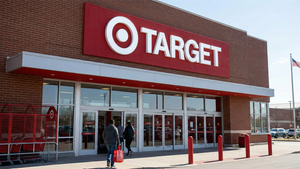Findings indicate significant acceleration in the use of new data sources - beyond traditional credit reports - that will expand financial opportunities for over 100 million U.S. consumers
Today Nova Credit, a leading credit infrastructure and analytics company, unveiled the findings of its 2024 State of Alternative Data in Lending Survey Report, revealing that 90% of lenders feel that access to more alternative data - including non-traditional data sources such as bank transaction data, employment data, payroll and pay stub data, and utility data that are not included in traditional credit data and bureau reports - would help them approve more worthy borrowers. Adoption of alternative data in underwriting practices will enable lenders to expand financial opportunities for the more than 100 million adult Americans who are considered unscorable, invisible, or subprime.
With 75% of lenders expecting that the CFPB’s proposed 1033 “Personal Financial Data Right” rule will eliminate data sharing obstacles for consumers—streamlining the way lenders collect and consider alternative data points in their credit risk assessments—the opportunities for widespread adoption of alternative data within credit underwriting practices are immense.
Today’s lenders, who face rising delinquencies, elevated interest rates, and historically low demand, are looking for ways to support their bottom line by responsibly expanding their market while reducing their overall risk. Alternative data is increasingly seen as essential for evaluating the creditworthiness of thin file consumers, who constitute nearly a quarter of the adult U.S. population.
However, only 43% of lenders currently supplement credit scores with alternative data in their risk assessments. Despite promising results, barriers to alternative data adoption persist, including concerns about regulatory scrutiny, data reliability, and integration complexities. The most widely reported concerns have to do with the logistics of implementation, rather than any doubts about potential results—that’s why 71% of surveyed lenders foresee an opportunity to collaborate with third-party vendors to help them implement alternative data practices, especially as the industry starts to look towards open banking.
Additional key findings from the survey include:
- A majority (78%) of lenders still use traditional, credit data-based underwriting as their main form of risk assessment. However, a significant number (31%) feel that traditional credit reports don’t paint a complete picture of a consumer’s finances. To address this financial knowledge gap, many lenders are turning to alternative data sources to bolster their underwriting models.
- A vast majority of survey respondents (90%) believe that greater access to alternative data would help them tap into new markets of interest. This includes interest in reaching young consumers (73%), recent immigrants (41%), and other thin file applicants (39%). Alternative data can be particularly helpful when it comes to approving a greater volume and range of borrowers without simultaneously taking on additional risk.
- There is wide consensus among finance leaders that the rising popularity of alternative data stands to shake up the lending market, particularly when it comes to regulatory compliance. In fact, 81% of surveyed lenders believe that open banking practices in the U.S. will have a significant influence on the development of consumer data security protocols.
“As lenders navigate an increasingly complex landscape, alternative data offers a promising avenue for enhancing lending practices and expanding access to financial services,” said Chris Hansen, GM of Cash Atlas Solutions at Nova Credit. “With regulatory shifts and technological advancements paving the way, the integration of alternative data is poised to reshape the lending industry for years to come.”
For more information and to access the full report, visit: go.novacredit.com/state-of-alt-data-in-lending-report
The Cash Flow Underwriting Summit presented by Nova Credit will take place September 12, 2024 in New York City. The inaugural assembly of credit industry leaders is dedicated to exploring and advancing the utilization of alternative data in lending. Keynote speakers include Kenneth Lin, CEO & Founder of Intuit Credit Karma; John J. McNamara, Principal Assistant Director, Markets of the Consumer Financial Protection Bureau; Eileen Serra, Board Director at Capital One; and many more. Apply to attend at www.cashflowunderwritingsummit.com.
METHODOLOGY
The survey, conducted by independent research firm Researchscape, polled 125 decision-makers across banks, credit unions, fintechs, and other lending institutions between January 23 and February 6, 2024.
ABOUT NOVA CREDIT
Nova Credit is a credit infrastructure and analytics company that enables businesses to grow responsibly by harnessing consumer credit data. The company leverages its unique set of data sources, bank-grade infrastructure and compliance framework, and proprietary credit expertise to help businesses fill the gaps that exist in traditional credit analytics. Nova Credit serves as the bridge between data and credit excellence, providing a comprehensive suite of solutions designed to give lenders across various industries - including finance, fintech, property management, telecom, and automotive - a competitive edge in the open finance era. Its cross-border credit product, Credit Passport®, cash flow underwriting product, Cash Atlas®, and income verification product, Income Navigator, are used by leading organizations like American Express, Verizon, HSBC, SoFi, Scotiabank, and Yardi. Nova Credit is backed by investors including Canapi Ventures, Kleiner Perkins, General Catalyst, and Index Ventures as well as executives from Goldman Sachs, JP Morgan, and Citi. Learn more at www.novacredit.com or reach out to connect@novacredit.com.
View source version on businesswire.com: https://www.businesswire.com/news/home/20240409228863/en/
Contacts
Rachel Levy
V2 Communications on behalf of Nova Credit
novacredit@v2comms.com





